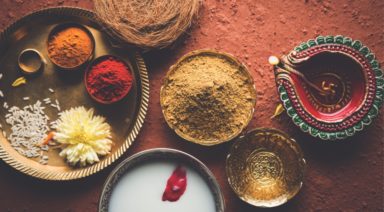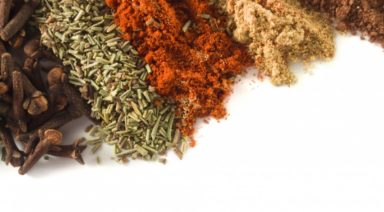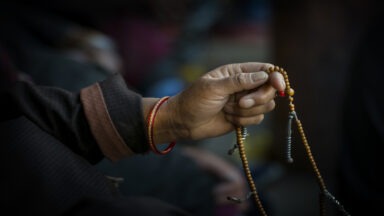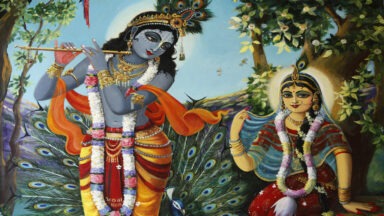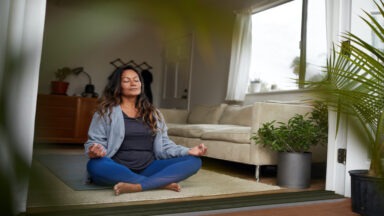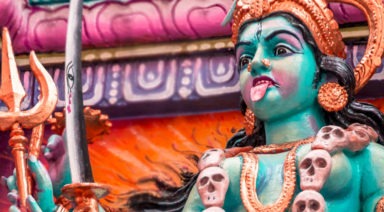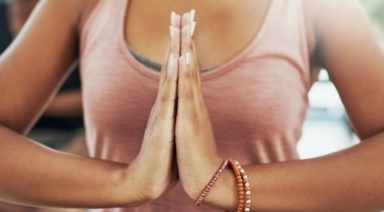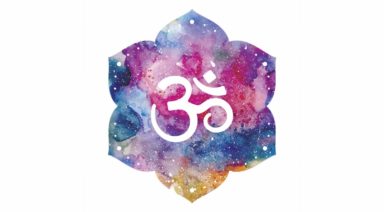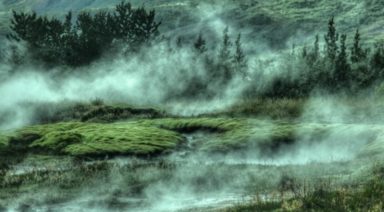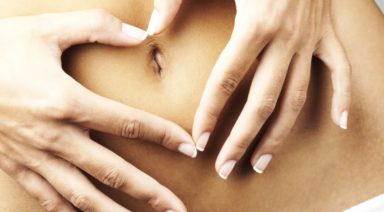How Your Emotional State Relates to the Ayurvedic Doshas

Ayurveda is the science of life. It is a holistic form of wellness that uses natural, earth-based wisdom to promote individual balance and health. Ayurveda teaches that there are three universal intelligences at work in the macrocosm of the universe and in the microcosm of our bodies. These intelligences are called the doshas. The doshas are made up of a combination of the five great elements: earth, water, fire, air, and ether. These five elements tend to group together into pairs that create the doshas: Vata, Pitta, and Kapha.
Vata
Vata is likened to the combination of air and ether; it is light, dry, cold, and changeable. It rules everything in the body and the universe that has to do with movement, transportation, and communication. Our speech, for example, is ruled by Vata dosha as is the motion of our intestines during peristalsis.
Pitta
Pitta is the combination of the fire element with a bit of moisture. It is the intelligence that governs everything that transforms, digests, and metabolizes. It governs all that transforms in our bodies; the enzymatic action of the stomach, the power of our sight, and our metabolism are some of the areas of the body ruled by Pitta dosha.
Kapha
Kapha dosha is likened to earth and water. It is heavy, cool, and stable. It rules our immunity, our strength, and our stability. Kapha dosha also rules the watery places in the body, the lining of the stomach, and the inside of the mouth, as well as our overall strength and immune system.
Understanding Your Emotional Ama
The doshas, however, do not just impact your physical body. The doshas are intelligences that rule all aspects of your mind, body, and emotions. In this way, you can see that your emotional states are likewise determined by the doshas. You can describe, analyze, and witness your emotional states in terms of the doshas.
This process allows you to process and digest your emotions. Ayurveda teaches that the result of anything undigested is ama, a thick toxic sludge that clogs up your vital channels. Just as food can remain undigested in the gut and cause ama, undigested, unprocessed emotions can also cause emotional ama. The result of this ama is repressed anger, sorrow, depression, and anxiety. The wisdom of Ayurveda can provide you with the keys to understand your emotions.
You can think of the qualities of the doshas as having balanced and unbalanced characteristics. Vata, when in balance in the body, will result in great elimination. When it is out of balance, however, you may experience a loose stool or constipation. Similarly, you can understand the emotional aspects of the doshas as having qualities that are in and out of balance.
Your Emotions & Vata Dosha
When in balance, Vata dosha will express itself as balanced enthusiasm and energy. The expression will be clear-minded, quick-witted, and supportive. When out of balance, Vata dosha will express itself emotionally as anxiety, fear, or being overwhelmed. You may become “spaced out,” flighty, indecisive, unaware, or unfocused. This is because your mind and emotions are experiencing the negative qualities of space and ether; too unfocused and spacey.
Solving for Vata
Vata dosha needs nurturing. You can calm your anxiety with awareness and meditation. If experiencing Vata emotions, you should ensure you are getting adequate rest. You can also perform a daily self-massage with warm sesame oil. Because Vata is irregular in nature, you can tame Vata by establishing a regular routine and sticking to it.
Eating warm, well-cooked, and slightly rich homemade and home-cooked foods are very nurturing to Vata. Since the salty taste is Vata pacifying (it is made of the elements of water and fire, is hot heavy, and moist by nature), you can take foods with a slightly salty taste, such as seaweed.
Someone with Vata emotions should reduce bitter flavors as they’re made of air and ether, and this flavor increases Vata dosha in the body. Other remedies that can pacify Vata emotions include the Ayurvedic practice of a shirodhara, daily meditation, and nadi-shodana pranayama. It is also a good idea to seek out people who are warm, grounding, supportive and nurturing.
Your Emotions & Pitta Dosha
Pitta dosha is like a fire (with a little moisture). The qualities of Pitta dosha are hot, penetrating, and intense. When in balance, Pitta will result in strong digestion. When out of balance, you may experience hot flashes, night sweats, or rashes. With a balanced Pitta emotion, you will be more generous, cheerful, humanitarian, successful, and be a visionary. Pitta dosha can also make you quite eloquent. When out of balance, Pitta dosha can make you irritable, frustrated, angry, aggressive, overly focused on goals, controlling, manipulative, and self-centered. It can also express in arrogance.
Solving for Pitta
Pitta dosha needs love. To placate Pitta emotions, you must get adequate rest. You can also cool off with a daily oil massage with sunflower oil. Because hot and spicy foods increase hot-headedness, you should avoid foods that are very pungent, vinegary, or acid-producing, like tomatoes and beef. Instead, if you are experiencing a great deal of Pitta dosha, you can favor bitter taste for its cooling energy. Foods like massaged kale and green juices are very pacifying to Pitta dosha. Rosewater sprays or rose petal jams (an Ayurvedic concoction) are very useful in soothing feelings of irritation.
It is also important to complete a daily meditation and to stop overworking and overdoing. To reduce the emotions of Pitta dosha, you can do a cooling pranayam (breathing technique) like sitali pranayama. It is also important to slow the pace of your speech and thoughts. A good remedy is to take a retreat day each week wherein you plan a day with no schedule, especially if you can spend that day outside in nature. People experiencing Pitta dosha will do well to focus on love and gratitude.
Your Emotions & Kapha Dosha
Kapha dosha is like water and earth. It is slow, heavy, difficult to move, and cold. When in balance, Kapha dosha will result in a strong immune system. When out of balance, Kapha dosha will result in weight gain and water retention. Likewise, when emotionally in balance, Kapha dosha will make you joyful, warm, and easy-going. You will be loving and comforting. When out of balance, Kapha dosha will result in feeling lazy, depressed, stuck, unmotivated, attached, and greedy.
Solving for Kapha
Kapha dosha needs to move stuck emotions. Remedies for Kapha emotions include a daily yoga asana practice that is vigorous, warming and creates sweat. Saunas are a great remedy for Kapha dosha. Doing a routine of sipping on hot water can be a wonderful remedy for Kapha dosha as well as taking a lighter diet with spicy, pungent foods and a lot of bitter taste to dry out and heat up the physiology that has become too wet and cold. Kapha dosha people do well to seek out very motivated, successful Pitta types. They also do well to throw out old clothes, books, and clutter.
If you are experiencing Kapha emotions, you should also perform a daily meditation and a heating pranayama practice like Kapalabhati. If you are experiencing Kapha emotions, you can focus on joy. Doing some physical exercise such as a cardiovascular workout or ashtanga yoga every day also helps to move stuck emotions as does travel.
The Process of Emotional Release
Dr. Paul Dugliss is an Ayurvedic practitioner who teaches a process of emotional release that can help you digest your emotions. In this process, he outlines the steps of emotional release.
- Become aware of your own emotional field.
- Intensify your emotions, bringing them to the center of your awareness.
- Identify the root causes of your emotions. What is the belief that is creating this emotion? Or do you have a desire that is creating this emotion?
Having a realization of the root cause of emotion will allow the emotion to shift because the very nature of emotions is to flow. To allow for this emotional flow, you need to understand the root of what is holding the emotion in place. You can then find a way to release the emotion through movement, yoga, sound, artistic or verbal expression, or through subtle energy work.
Becoming aware of the effect of the doshas on your emotions will allow you to witness your own emotional flow and to be less reactive to the emotions of the people around you. Instead of seeing your partner as “angry” you can see that Pitta dosha is out of balance and making them angry. This allows you space to witness emotional patterns rather than compulsively engaging with them.
Panchakarma: An Ayurvedic Cleansing Method
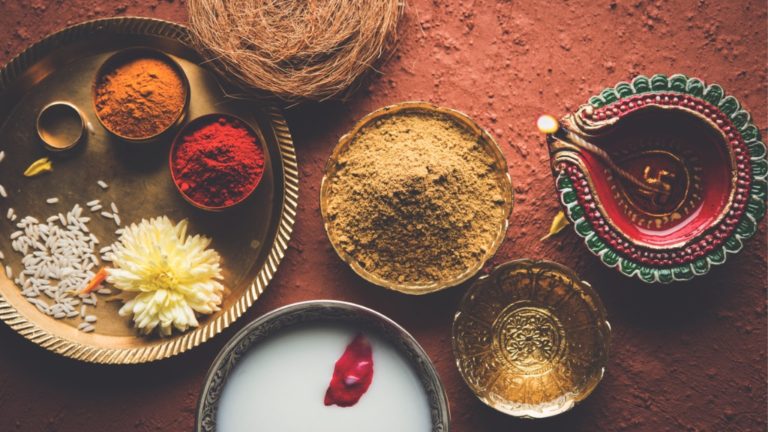
What is a Panchakarma?
The panchakarma is the crown jewel in Ayurveda’s treasure house. Ayurveda is a holistic system of medicine, with roots in Hinduism, that emphasizes preventative and healing therapies along with various purification techniques. In Ayurveda, the five basic elements — ether, air, fire, water and earth — are manifested in the body as three different predominant constitutions, or doshas. Each person has one dosha that dominates, except in the extremely rare case that the three doshas — vata, pitta, and kapha — are in equal balance.
The best metaphor for a panchakarma detox is that it’s like getting an oil change — for your body. It’s kondo-ing your diet, pruning it down to only the most nourishing foods — kitcheree and ghee. It’s detox on “steroids,” combining a restrictive diet with specific massage treatments, rest, yoga, meditation, enemas, and herbs. Think total reboot plus system upgrade.
The idea behind a panchakarma, also called PK, is to bring the body back to its natural order and restore doshic balance. Typically, if one’s predominant dosha is given free reign and its preferences allowed to dominate (in Ayruveda this is known as doshic derangement), it disturbs the harmony of one’s whole being. Consciousness, digestion, and elimination all become impacted, and a mild protest starts to foment in the body, laying the groundwork for chronic disease and ill health.
Slowly, toxins accumulate while digestion weakens, creating a perfect storm for toxin retention — ence the tenacity and thoroughness of the PK protocol. You channel your inner Macbeth to wage war on your deranged doshas and declare “out, damned [toxins].”



